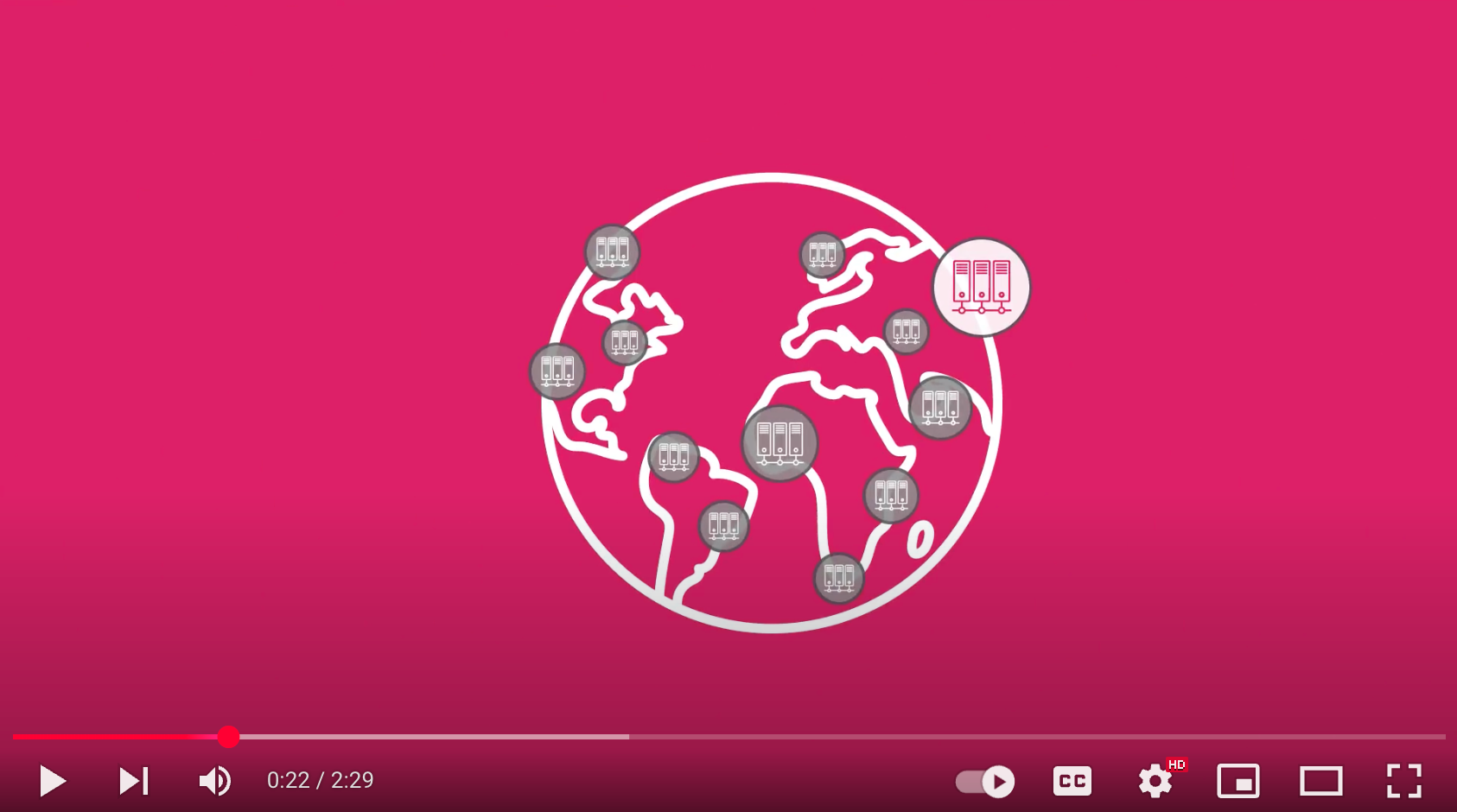Why You Should Be Using a Privacy-Centric DNS Service in 2025

Introduction | The Cybersecurity Tool You Didn’t Know You Needed
January 2025 — We’re at that point in the story of technological advancements where the digital landscape is evolving at breakneck speed. However, with this rapid digitalization of personal information, data privacy has become more crucial than ever. Gone are the days of the late 90s when Internet users could largely ignore how their browsing habits were being tracked and exploited. Throughout 2025, the need for greater security and privacy online will be undeniable — especially at the foundational level of our Internet connections: the Domain Name System (DNS). Security and privacy-centric DNS services are not just a fringe solution reserved for the tech-savvy. They are now an essential part of any modern Internet user’s toolkit. This month, we will discuss the risks of ignoring this critical layer of protection, the benefits for individuals, businesses, and society at large, and why using a privacy-centric DNS service in 2025 should be standard operating procedure for anyone with a connected device.
What is DNS and Why It Matters
In short, DNS, often described as the “phone book” of the Internet, translates website URLs into computer-friendly IP addresses. Whenever you type a web address into your browser, a DNS resolver acts as a trusted guide, connecting that familiar domain name to the specific server where the site resides. Without DNS resolvers, you would be forced to memorize numerical addresses for every website you visit. The DNS system plays a major role in maintaining fast responses and stable performance.
The Unseen Gatekeeper to Your Online Activity
It might be surprising, but DNS requests can reveal more about your browsing habits than you may think. Every time you load a webpage, stream a movie, or send a message, DNS is the first checkpoint on your path. If this stage is not secure, unauthorized parties can gain insights into your online activity. Privacy-centric DNS services add a protective layer, shielding your personal interests and digital footprints. In 2025, highlighting the value of safeguarding these initial steps is not fear-mongering — it is essential for maintaining trust, confidence, and peace of mind for anyone with a connected device.
The Evolving Privacy Landscape in 2025
As personal information continues to pour into countless online services, unintended entities — cybercriminals included — gain more opportunities to target individuals, their data, and their wallets. The Internet of 2025 is quickly being shaped by rising threats, evolving regulations, and fortunately, the public’s growing interest in privacy tools. Here are a few areas, albeit not all, that you should be keeping an eye on in 2025.
Lower Barriers to Entry for Cybercriminals
The cost of new technology typically follows an exponential decay trend, where prices start high when a product or service is first introduced but decrease rapidly as production scales, competition increases, and processes improve. Over time, this rate of decline slows, and prices approach a baseline level, making the product/service more affordable to the general public.
Unfortunately, this rapid democratization of technology also applies to the cost of resources used by malicious actors. Methods like phishing, malvertising, or malware injecting that once required sophisticated skills and monetary investment can now be accomplished with inexpensive and readily available tools.
Based on historical data and future projections, most threat intelligence providers would agree that this trend will persist throughout 2025, highlighting the need for the general public, businesses, and network admins to take proactive security and privacy measures.
Increased Surveillance and Data Monetization
It is no secret that government bodies and private companies both gather large volumes of DNS data that is specifically associated with users or households. This information often changes hands among third-party brokers who build detailed profiles for targeted advertising. Unfortunately, these same datasets can slip into criminal markets where personal information may lead to fraud or identity theft. DNS queries remain a key part of this puzzle because they show what users do and where they go online, making them valuable to marketers and threat actors alike. The trend of data harvesting is no new concept by any means, however, 2025 is poised to quickly outpace prior years in terms of data collected — and subsequently, personal data that is sold, shared, and stolen.
Stricter Privacy Regulations, Yet Persistent Threats
Even with global regulations — such as broader GDPR rules and new U.S. state-level standards — aiming to limit abusive data use, they still leave gaps.
Just as importantly, many organizations that are in the path of DNS data have broad interpretations of their privacy policies and craft those documents in unclear ways that exempt them from the standard legal protections that you may enjoy. You may have agreed implicitly to a privacy policy that allows your network provider to build a profile of your browsing habits and sell that data to marketers — have you read the privacy policy of your ISP recently with a critical eye? Ultimately, privacy policies should always be easily accessible and easy to understand. Here’s an example of a privacy policy that is not only easy to locate but is written in a way that avoids legal jargon often used in documentation of this nature.
Compliance offers some relief, but depending on government action alone may not provide adequate protection. Active steps, such as choosing a security and privacy-centric DNS service, strengthen your safeguards and reduce the risk of having personal habits turned into profit streams for others.
Growing Awareness and Demand for Privacy Solutions
People worldwide are now asking Internet providers and technology platforms for more transparency and control over how their data is handled. This shift encourages the adoption of consumer-friendly privacy options, making it simpler for anyone to find tools that can help keep their information more secure. In this changing environment, DNS resolvers hold a unique place. By switching to a trusted — and privacy-focused — DNS resolver, you can add a solid layer of defense that respects your choices and helps ensure your data remains safely under your control.
How Do I Know If my DNS Resolver is Secure and Private in 2025?
By 2025, the amount of personal data flowing through the Internet will, unsurprisingly, hit an all time high. Researchers estimate that the amount of global data generated in 2025 will reach 181 zettabytes. To put this into perspective, if you tried counting up to 181 zettabytes one byte at a time — saying “one… two… three…” — it would not only take your entire lifetime, but millions of lifetimes. In fact, it would take longer than the sun’s estimated remaining lifetime to finish the count.
Naturally, this type of exponential data generation also means an increase in the number of targets for cybercriminals. This sentiment in itself should be enough to convince even the occasional Internet user to enhance their cybersecurity hygiene habits in 2025.
Deciding which DNS service to trust can feel overwhelming. Technical documentation and instructions often feature terms that seem out of reach. Fortunately, you don’t need to become a cybersecurity engineer to make a smart choice. For those exploring DNS privacy solutions in 2025, we recommend evaluating a DNS resolver by ensuring that it checks — at minimum — these four boxes:
- Strict No-Logging Policies
A trustworthy DNS service will commit to never storing identifying data about you. Check to see if your DNS service maintains documented promises and transparency reports. In simpler terms, a no-logging policy means the provider will not record, share, or sell personal data about you or what websites you visit. - Robust Security Measures
A DNS service that supports and enforces security features such as DNSSEC, DNS-over-TLS, DNS-over-HTTPS, and other encryption models ensures the addresses you receive are authentic, while threat intelligence and domain blocking features help shield you from malicious sites. Continuous testing and updates keep defenses fresh, better protecting you from emerging dangers. - Performance and Reliability
Top-tier DNS services run on global networks designed to respond quickly from anywhere. Reliable failover systems reduce downtime and maintain steady performance. This balance of privacy and speed helps ensure you never sacrifice convenience for safety. - User-Friendly Setup and Integration
Clear instructions, compatibility with most devices, and responsive support teams help ensure you can change your DNS settings in moments. Even newcomers can enhance their privacy without hours of research or complicated steps.
By focusing on these elements, you can confidently select a DNS service that respects your privacy, stands guard against cyber threats, and keeps your online experience smooth and efficient. And for those considering Quad9 as their free DNS service in 2025 — Yes, we check all of these boxes.
Ultimately, by making the choice to use a security and privacy-focused DNS service, you’re taking a foundational step to safeguard your data, enhance your online experience, and help build a more secure, trustworthy Internet for everyone.
Stay Connected
Join us on our new accounts:
About Quad9
Quad9 is a nonprofit foundation based in Switzerland that provides free cybersecurity services to the emerging world via secure and private DNS lookup. Quad9 operates over 260 locations across more than 115 nations, blocking hundreds of millions of malware, phishing, and spyware events daily for an estimated 100+ million end users. Quad9 reduces harm in vulnerable regions, increases privacy globally against criminal or institutionalised interception of Internet data, and improves performance in under-served areas.



